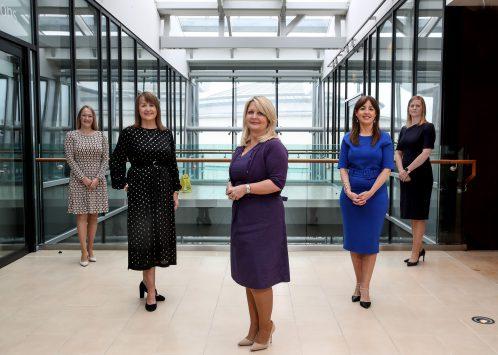The government’s ability to move at speed, particularly in making key strategic planning decisions, will be key to the success of Northern Ireland’s future Energy Strategy the Northern Ireland Chamber of Commerce and Industry (NI Chamber) has warned.
Responding to the Department for the Economy’s Energy Strategy consultation, which closes on 2 July, the organisation has also stressed the need for a dedicated budget for the Strategy and a strong pathway of actions, timelines and measurable achievements – commenting that a failure to do so will risk the Strategy’s chance of success and impact on Northern Ireland’s attractiveness as an inward investment location.
Patrick Anderson, Chair of the NI Chamber Infrastructure Committee, commented: “NI Chamber strongly endorses the draft Energy Strategy’s detail and ambition in driving forward the net zero agenda for the Northern Ireland economy and society. Everything that is set out in the Energy Strategy sends a clear signal locally, nationally and internationally about Northern Ireland’s commitment to achieving net zero through energy reform. This in our view can only enhance Northern Ireland’s attractiveness as an investment location and is something that will be increasingly demanded as part of that competitive environment to attract sustainable businesses and sectors.
“The planning process will be key to the successful delivery of this Strategy. Northern Ireland needs to accelerate what we are doing if we are to keep up with our peers nationally and internationally. There are projects in the system that can be ready for 2024/25 – projects which will support the 70% 2030 renewable electricity target – therefore the ability to move through key strategic planning decisions at speed, for all aspects of the Energy Strategy, including projects and grid infrastructure, is extremely important.
“There also needs to be consideration given to the budget allocated to deliver the Strategy. The fact that it will sit within the various stakeholder Departments makes it more difficult to focus funding to the areas of the strategy that need it most such as a transport transformation and to decarbonise to more indigenous renewables, keeping people better connected for a cleaner, greener future and a thriving competitive economy. A more effective mechanism for budget/resource exchange should be considered to ensure that funding is available quickly. We need to think beyond budget and policy cycles to make this Strategy work.
“Finally, we would like to see a much more explicit focus on the business economy in the final Strategy. This would set out more clearly the role of business in driving the vision and priorities of the Energy Strategy forward in terms of innovation, investment and skills and provide a better understanding of what Government will do to support the indigenous business community to maximise the opportunities presented.”
The NI Chamber Infrastructure Committee Chair also provided further comment on key elements of the strategy:
On electric vehicles:
“There is a general consensus among members that significant progress can be made quickly in the whole area of Electric Vehicles, both domestic and fleet and we welcome a dedicated approach in the Strategy in taking this forward at speed. We are clearly behind the rest of the UK and need to move quickly to catch up, when ideally we should be trying to lead.”
On costs for businesses:
“Arguably the main considerations for businesses will be the cost of introducing more sustainable energy practices. How can these ambitious objectives be achieved without increasing costs? This balancing act needs to be addressed in the Energy Strategy to achieve business and consumer buy in. Making the case that the investment in fixed infrastructure will lead to energy savings will be key.
“NI Chamber can’t stress strongly enough the critical role that finance will play in incentivising investment in energy, whether this is in the form of grants, low cost loans but also as tax incentives where good behaviours, including investment intentions, are rewarded.”
On the proposed ‘One-stop shop’:
“NI Chamber believes the ‘one stop shop’ approach is a very important addition to the Strategy with the provision that there is an explicit business focus as outlined above. Engagement, ease of use, partnership, measureable standards and goals for achievement will be key. A body devoted to promote and assist the development of sustainable energy in Northern Ireland would be a welcome addition to support the drive towards sustainable energy goals.”


